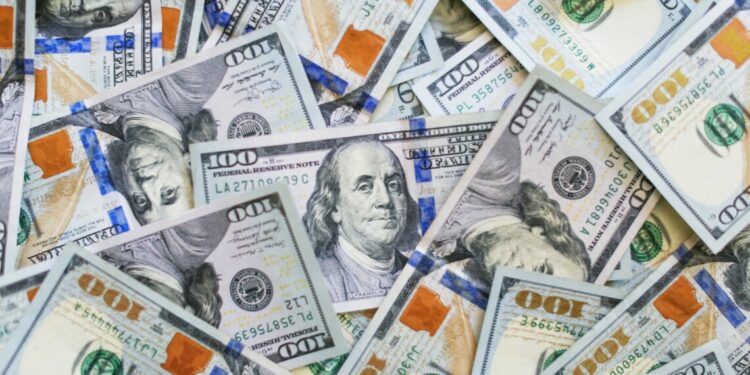Nigeria’s Reserves hit $43.17bn in October
The naira recorded a notable gain of N33.50 against the dollar in the official foreign exchange market in October, supported by rising external reserves which climbed to $43.17 billion during the month.
Data released by the Central Bank of Nigeria (CBN) showed that the naira ended the month at a record high of N1,421.73 per dollar on Friday, marking its fourth consecutive all-time strong level since the introduction of the Nigerian Foreign Exchange Market (NFEM) under the Electronic Foreign Exchange Management System (EFEMS). This represented a month-on-month appreciation of 2.4 percent compared to the N1,455.23 quoted at the beginning of the month.
On a daily trading basis, the naira appreciated by N15.24 or 1.07 percent from N1,436.97 quoted on Thursday, showing sustained demand moderation and improved liquidity in the FX market. Over the course of the week, the currency gained 2.18 percent or N31.06, strengthening from N1,452.79 per dollar on Monday to N1,421.73 on Friday.
In the parallel market, also known as the black market, the naira closed the month at N1,455 per dollar, maintaining the same level recorded at the start of October. However, within the month, the local currency showed intra-week strength, appreciating by N30 or 2.06 percent from N1,485 quoted on Monday, the first trading day of the week. On a daily basis, the naira gained 0.3 percent or N5 to close at N1,455 on Friday compared to N1,460 quoted on Thursday.
Meanwhile, Nigeria’s external reserves rose to $43.17 billion as of October 30, 2025, marking a 1.8 percent increase month-on-month from $42.40 billion at the beginning of October, according to CBN data.
Analysts at United Capital Research, in their fourth-quarter economic outlook, projected that reserves will continue to rise steadily, driven by higher oil export earnings, increased diaspora remittances, and a favourable trade surplus.
United Capital noted that as of September 30, 2025, Nigeria’s external reserves stood at $42.53 billion, the highest in over 44 months, supported by consistent capital inflows, a trade surplus, and diaspora remittances. The firm also attributed the sustained buildup to improving macroeconomic stability and noted that the reserves now cover more than eight months of imports, a development expected to have a positive short-term impact on the naira’s value. The report emphasised that the figure reflects a 30-day moving average, suggesting that actual reserve levels may be higher than reported.
The report further highlighted that the continued appreciation of the naira is being supported by increased dollar supply and narrowing gaps between the official and parallel markets. The premium between both markets has shrunk to less than one percent, compared to about seven percent in January 2025, indicating improved confidence in Nigeria’s foreign exchange management framework. Analysts added that while the U.S. tariff regime and global uncertainties had pressured the naira earlier in April 2025, the risk of depreciation now appears low due to a more stable economic outlook.
United Capital also observed that more investors are shifting from dollar-denominated assets to naira investments, underscoring growing confidence in Nigeria’s short-term economic prospects.
Further supporting the trend, the CBN’s latest Quarterly Statistical Bulletin (QSB) revealed that total foreign exchange utilisation across the economy increased by 19 percent quarter-on-quarter to $9.3 billion in the first quarter of 2025, representing a 39 percent year-on-year growth. The rise was largely driven by a surge in invisible transactions, such as services and transfers, which grew by 54 percent quarter-on-quarter to $4.5 billion. This category’s share of total FX usage expanded to about 48 percent, up from 37 percent in the fourth quarter of 2024.
Analysts at FBNQuest added that the availability of ample liquidity and attractive yields in the domestic market have supported robust investor participation in government securities auctions, further strengthening market stability and investor confidence in the naira.








